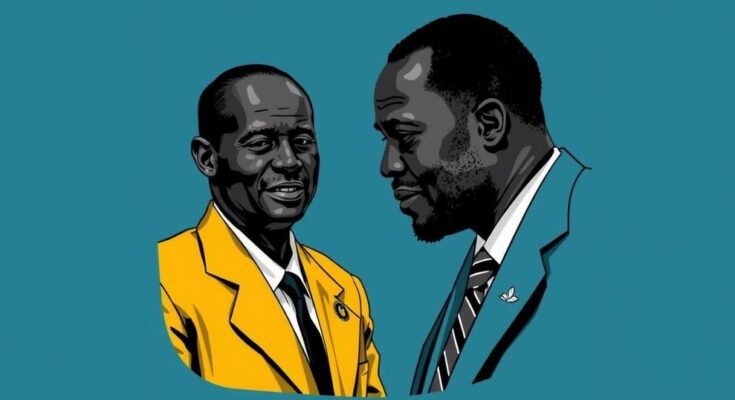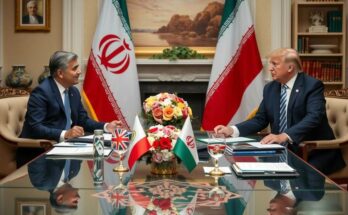The U.S. government raised concerns about the detention of Ugandan opposition leader Kizza Besigye in Kenya and his transfer to Uganda. Assistant Secretary Molly Phee noted jurisdictional issues regarding charges against Besigye, who faced allegations of illegal firearms possession and plotting against the government. The Kenyan government denied involvement in his abduction, which has attracted international attention, especially following Besigye’s appearance in a military court four days after his reported capture.
The U.S. government has expressed significant concerns regarding the transnational detention of Ugandan opposition leader Kizza Besigye and his associate, Obeid Lutale. Assistant Secretary for African Affairs, Molly Phee, highlighted issues surrounding their apprehension in Kenya and transfer to Uganda in a statement released on November 21. Besigye was allegedly captured in Nairobi and faced several charges upon his return, including illegal firearms possession. His legal defense has raised critical questions about the jurisdiction of Ugandan martial courts over alleged offenses that occurred internationally. Furthermore, the involvement of the U.S. signals broader diplomatic ramifications of the case, emphasizing the need for transparency and legal protections for those detained. Additionally, on November 20, Kenyan Foreign Affairs PS Korir Sing’Oei denied state involvement in Besigye’s alleged abduction, clarifying that Kenyan officials were unaware of his travel plans before his disappearance on November 16. The situation became internationally recognized after Besigye’s wife publicly appealed for his freedom. Four days post-abduction, he appeared in a military court in Uganda facing serious allegations. This case not only raises questions regarding international law and human rights but also highlights the complex diplomatic relations between Kenya, Uganda, and the United States.
The case of Kizza Besigye, a prominent opposition figure in Uganda, has drawn attention due to its implications for human rights and international law. Besigye’s detention raises questions regarding the legitimacy of legal proceedings conducted in a foreign jurisdiction, particularly regarding allegations of his involvement in anti-government activities beyond Uganda’s borders. The U.S. State Department’s response signifies the importance of procedural justice and transparency in such matters, alongside the implications for regional political dynamics. The historical tension between the Ugandan government and opposition leaders such as Besigye reflects ongoing political strife within the country, making this incident pivotal.
The controversy surrounding Kizza Besigye’s detention has highlighted significant legal and diplomatic concerns involving Kenya, Uganda, and the United States. As questions regarding jurisdiction and the validity of charges arise, the case underscores the need for adherence to legal norms and human rights protections. The U.S. government’s intervention adds a layer of international scrutiny that may influence the outcomes for both Besigye and the diplomatic relations in the region. Continued attention to this case is crucial, as it embodies broader issues regarding governance, legal authority, and political rights in East Africa.
Original Source: www.mwakilishi.com




